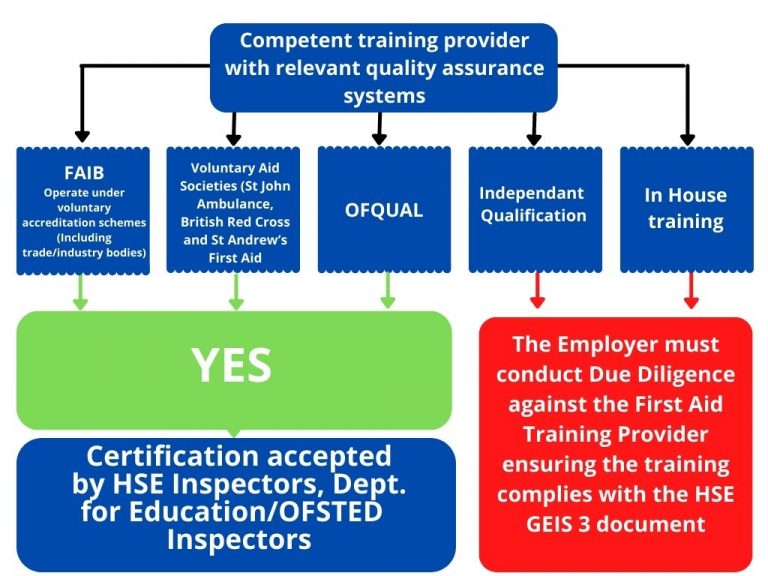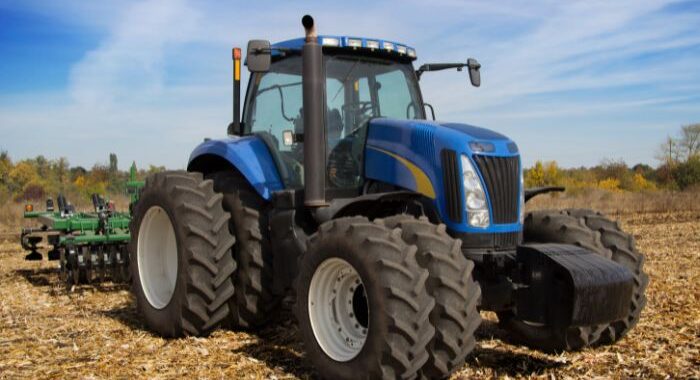If you, like millions across the UK and beyond, have found yourself captivated by the hilarious, often chaotic, yet undeniably charming world of Diddly Squat Farm on Clarkson’s Farm, then you’ve witnessed firsthand the sheer unpredictability of agricultural life.
From a runaway combine harvester to an unexpectedly aggressive boar, Jeremy Clarkson, Kaleb Cooper, and the rest of the crew consistently demonstrate that farming isn’t just about idyllic landscapes and peaceful pasture; it’s a demanding, dynamic environment where the unexpected is often just around the corner.
While the show provides endless entertainment, it also serves as a subtle, yet potent, reminder of the inherent dangers that farmers and agricultural workers face every single day.
We’ve seen machinery mishaps, animal-related incidents, and even Kaleb’s recent, very real-life injury involving a baler. These moments, played for laughs or dramatic tension on screen, highlight a stark, undeniable truth: agriculture consistently ranks as one of the most dangerous industries in the UK.
Year after year, the statistics paint a grim picture. In 2023-24, around 34 people tragically lose their lives on British farms annually according to Farmers Weekly, with thousands more sustaining serious, life-altering injuries.
The rate of fatal injury in agriculture is, shockingly, around 21 times higher than the all-industry average.
This isn’t just about heavy machinery; it’s about working with unpredictable livestock, handling hazardous chemicals, navigating heights, and often, operating in isolated conditions for long hours, leading to fatigue.
In such a high-risk environment, every second truly counts.

Unlike urban workplaces with immediate access to emergency services, remote farm locations often mean significant delays in professional medical help arriving.
This critical time gap – often referred to as the “platinum ten minutes” – underscores why immediate, competent First Aid on-site isn’t just beneficial; it’s potentially life-saving.
That’s why, inspired by the very real scenarios we’ve seen unfold (and sometimes narrowly avoided!) on Diddly Squat Farm, we at Lightning Training Solutions want to highlight the paramount importance of First Aid training for everyone working in the agricultural sector.
Are you truly prepared to handle an emergency when it strikes on your farm?
Equipping yourself and your team with the right skills isn’t just about compliance; it’s about cultivating confidence, protecting your most valuable assets, and ensuring that your farm operates as safely as possible.
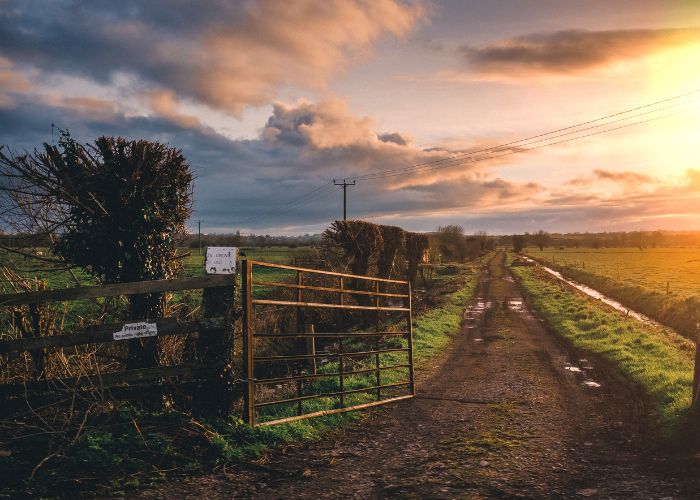
WE’RE OFFERING 10% OFF OUR COURSES FOR ALL AGRICULTURAL WORKERS
We can deliver First Aid training on your farm, or we’re happy to split the course over several days or weeks to fit your schedule.
The “Save Our Farmers” Movement: Supporting the Backbone of Our Nation
Beyond the daily grind and the inherent risks, British farming is currently facing unprecedented challenges too.
From fluctuating market prices and environmental pressures to global competition and rising operational costs, the agricultural community is under immense strain.
This backdrop has given rise to the vital “Save Our Farmers” movement, a collective cry to recognise, support, and protect the individuals who quite literally put food on our tables and maintain our cherished landscapes.
This movement is about far more than just economic viability; it’s about the very well-being and sustainability of rural life.
When we talk about “saving our farmers,” we’re not just discussing profits; we’re talking about preventing burnout, promoting mental health, ensuring fair treatment, and, crucially, safeguarding physical health and safety.
In this context, First Aid training becomes a tangible act of support within the “Save Our Farmers” ethos.
Why Standard First Aid Isn’t Enough: Unique Agricultural Risks
While a general First Aid course provides invaluable basic life support skills, the agricultural environment presents a unique array of hazards that demand a more specialised approach.
A farm is not your typical office or retail space; it’s a dynamic, often isolated workplace where severe injuries can occur in the blink of an eye.
Relying solely on standard First Aid training in such a setting could leave you critically unprepared when facing the specific types of trauma prevalent in farming.
Here’s why farming demands a targeted approach to First Aid training:
- Specific Farm Injuries and Illnesses: Farmers are regularly exposed to risks that are uncommon in other sectors. These can include:
- Crush Injuries: Often sustained from heavy machinery (like tractors, telehandlers, or balers), falling objects, or unpredictable livestock. These can lead to internal bleeding, organ damage, and complex fractures.
- Amputations and Severe Lacerations: Tools such as chainsaws, power take-off (PTO) shafts, balers, and other cutting machinery can cause devastating injuries, resulting in catastrophic bleeding and limb loss.
- Chemical Exposure and Poisoning: Farmers frequently handle pesticides, herbicides, fertilisers, and cleaning agents. Accidental exposure can lead to respiratory issues, chemical burns, or systemic poisoning.
- Animal-Related Incidents: Working with livestock carries inherent risks of kicks, bites, crushing against barriers, or being gored. These injuries can be powerful and deep, leading to significant trauma.
- Falls from Height: Silos, ladders, barns, and machinery often require working at height, increasing the risk of falls which can result in head injuries, spinal trauma, and multiple fractures.
- Environmental Factors: Prolonged outdoor work means exposure to extreme weather. Farmers are susceptible to hypothermia in cold, wet conditions and hyperthermia (heatstroke) during hot spells. Less common but equally serious are zoonotic diseases like Weil’s disease (leptospirosis) from contaminated water or Lyme disease from tick bites.
- Lone Working Challenges: Many farmers work alone for extended periods in remote locations. This means that if an accident occurs, there might be no one to witness it or raise the alarm, significantly delaying discovery and professional medical assistance.
- The Role of First Aid in Mitigating Severe Outcomes: In these scenarios, immediate and appropriate First Aid can be the difference between a full recovery, long-term disability, or even survival. Knowing how to:
- Control Catastrophic Bleeding: Essential for deep lacerations or amputations, using techniques like tourniquets or haemostatic dressings, which are often not extensively covered in basic courses.
- Safely Manage Crush Injuries: Understanding the risks of crush syndrome and how to monitor and support a casualty.
- Immobilise Suspected Fractures and Spinal Injuries: Crucial for preventing further damage, especially in remote settings where movement might be necessary before paramedics arrive.
- Recognise and Treat Shock: A common and dangerous consequence of severe injury or illness, which if left unmanaged, can be fatal.
- Administer Emergency Resuscitation: Knowing how to perform Cardiopulmonary Resuscitation (CPR) effectively in a stressful, potentially dirty environment.
Standard First Aid provides a good foundation, but it’s the critical, context-specific knowledge of agricultural hazards and the advanced techniques for managing severe trauma that truly equip a farmer to be a lifesaver on their own land.
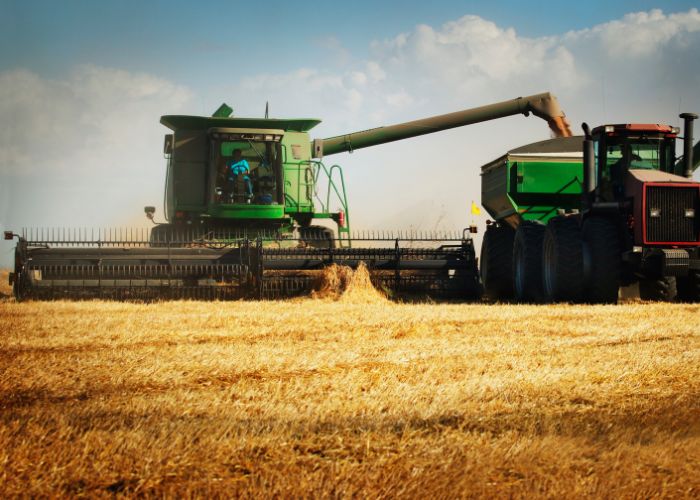
First Aid Courses for the Agricultural Sector
At Lightning Training Solutions, we understand that one size doesn’t fit all, especially when it comes to the diverse and demanding world of farming.
That’s why we’ve meticulously designed a suite of First Aid courses, each tailored to address the specific needs and unique risks faced by individuals working across the agricultural spectrum.
From essential emergency response to comprehensive remote care, our training ensures you’re equipped with life-saving skills directly applicable to your farm environment.
Here’s a breakdown of our key First Aid courses relevant to farming:
Emergency First Aid at Work (EFAW) + Critical Injuries (1-Day Course)
- Who it’s for: This concise yet powerful one-day course is ideal for individuals, smaller farms, or those who need a solid, essential foundation in emergency response. It’s perfect for designated First Aiders in lower-risk agricultural settings or as a crucial baseline for anyone wanting to be prepared.
- Key Learning Outcomes (tailored to farming):
- Assessing an Incident Scene: Learn to quickly and safely evaluate an emergency situation, with a specific focus on common farm hazards like moving machinery, unstable ground, or aggressive livestock.
- Unresponsive Casualty Management: Master the critical skills of placing an unconscious casualty in the recovery position and performing effective Cardiopulmonary Resuscitation (CPR).
- Dealing with Severe Bleeding: Gain proficiency in managing significant blood loss, including the application of direct pressure, elevation, and crucially, the use of tourniquets and haemostatic dressings for critical, life-threatening bleeds often seen in agricultural accidents.
- Managing Shock: Understand how to recognise and treat different types of shock, a common and dangerous consequence of injury.
- Basic Wound Care, Burns, and Minor Injuries: Learn how to effectively manage everyday cuts, scrapes, and burns that are common on a farm.
- Recognising and Responding to Conditions: Understand initial response to conditions like hypothermia, which is a real risk in outdoor farming environments.
- Benefit: This course provides the essential, immediate response skills vital for the most urgent and potentially devastating situations, empowering you to act decisively in those critical first moments.

First Aid at Work (FAW) + Critical Injuries (3-Day Course)
- Who it’s for: Designed for larger farms, agricultural businesses, or individuals designated as comprehensive workplace First Aiders, this three-day course offers a more in-depth and extensive understanding of First Aid principles and practices. It’s the gold standard for robust farm safety.
- Key Learning Outcomes (expanded with farming context):
- All EFAW content plus: A more thorough exploration and practical application of all emergency response skills.
- Secondary Survey: Learn how to conduct a detailed assessment of a casualty’s injuries and conditions once immediate life threats are managed.
- Musculoskeletal Injuries: Gain proficiency in managing fractures, dislocations, and sprains, with specific attention to the types of breaks common in farm-related incidents (e.g., limb injuries from falls or crushes).
- Head and Spinal Injuries: Understand how to recognise and safely manage suspected head trauma and spinal injuries, including techniques for stabilising and carefully moving casualties.
- Medical Emergencies: Develop skills to respond to a wider range of medical emergencies frequently encountered in rural settings, such as chest pains (heart attacks), strokes, seizures, diabetic emergencies, and allergic reactions.
- Advanced Management of Major Bleeds: Enhanced practical sessions on advanced techniques for controlling severe haemorrhage.
- Record Keeping and Incident Reporting: Learn the importance of accurate documentation following a First Aid incident.
- Benefit: This comprehensive course equips individuals with a broad range of skills to manage a far wider variety of emergencies effectively, providing a high level of confidence and competence in critical situations.
First Aid at Work + Forestry Elements (also inc. critical injuries)
- Who it’s for: This specialised FAW course is specifically designed for farmers involved in forestry work, woodland management, or those regularly using chainsaws and other heavy cutting equipment within their agricultural operations.
- Key Learning Outcomes (specific to forestry):
- All FAW content plus:
- Specific Chainsaw/Machinery Injuries: Enhanced focus on managing the deep lacerations, puncture wounds, and potential amputations caused by forestry tools.
- Crush Injuries (Logging & Falling Trees): In-depth understanding of the specific risks of crush injuries from falling timber or logging equipment.
- Suspension Trauma: Awareness and initial management of suspension trauma, a critical risk for those working at height in trees with harnesses.
- Enhanced Environmental Exposure Management: Given the prolonged outdoor nature of forestry, there’s an even greater emphasis on preventing and treating severe hypothermia and hyperthermia.
- Tick-borne Diseases (e.g., Lyme Disease) Awareness: Crucial information on recognition, prevention, and initial steps for potential tick-borne infections common in woodland environments.
- Benefit: Tailored for the highly specific and often severe risks associated with forestry work, this course ensures First Aiders are prepared for the particular challenges of working with timber and heavy cutting equipment.
Outdoor First Aid Course
- Who it’s for: This course is vital for farmers working in highly remote or isolated areas of their land, those who conduct outdoor recreational activities, or manage land with public access where immediate external help is unlikely.
- Key Learning Outcomes (focus on remote environments):
- Managing Incidents When Emergency Services are Significantly Delayed: Strategies for prolonged casualty care in situations where definitive medical help is hours away.
- Prolonged Casualty Care in Outdoor Conditions: Techniques for keeping a casualty warm, comfortable, and stable for extended periods in challenging weather.
- Improvised First Aid Techniques: Learn how to utilise available resources (e.g., natural materials, farm equipment) to improvise splints, shelters, or stretchers.
- Advanced Environmental Exposure Management: Comprehensive understanding of preventing and treating severe cold injuries (frostbite, trench foot) and heat-related illnesses.
- Navigation and Communication: Essential skills for accurately describing your location and effectively communicating with emergency services in remote areas.
- Benefit: Essential for extreme rural or isolated farm environments, this course equips you to manage emergencies when professional medical assistance is not readily available, making you truly self-sufficient in a crisis.
Each of these courses is delivered by experienced instructors who understand the realities of agricultural life, ensuring the training is not just theoretical, but practical, relevant, and engaging.
For further information, or to book course, please complete the form below and we’ll get in touch to arrange this.
WE’RE OFFERING 10% OFF OUR COURSES FOR ALL AGRICULTURAL WORKERS
We can deliver First Aid training on your farm, or we’re happy to split the course over several days or weeks to fit your schedule.
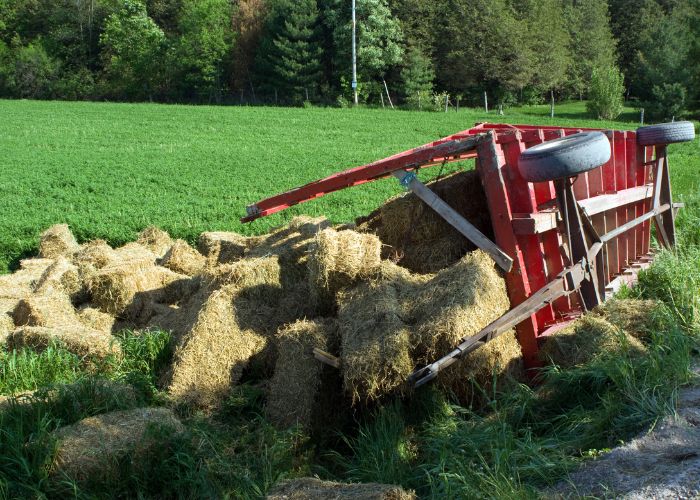
Investing in Safety: The Tangible Benefits for Your Farm
First Aid training isn’t just about patching up injuries; it’s a profound investment with far-reaching benefits for your entire farm operation.
While the immediate ability to respond to an emergency is paramount, the advantages ripple outwards, impacting your team, your finances, and the overall culture of safety on your land.
Here’s why proactive First Aid training with Lightning Training Solutions is a smart and essential decision for every farmer:
Protecting Your Most Valuable Asset: Your People
- The Human Cost: At the heart of every farm are its people – whether family, employees, or contractors. A serious accident not only causes physical pain and suffering but can also lead to significant emotional distress, long-term disability, or even tragic loss of life. Investing in First Aid training demonstrates a clear commitment to their well-being and safety.
- Moral and Ethical Responsibility: Beyond regulations, there’s a fundamental moral and ethical duty to provide a safe working environment. Equipping individuals with First Aid skills directly fulfils this responsibility, showing that you value the lives and health of those who work on your farm.
- Improved Morale and Confidence: When your team knows that someone on-site can respond effectively in an emergency, it fosters a greater sense of security and confidence. This can lead to increased morale, productivity, and a more positive working atmosphere.
Minimising Downtime and Financial Loss
- Operational Continuity: A severe injury can bring vital farm operations to a grinding halt. Whether it’s planting, harvesting, or tending to livestock, unexpected interruptions due to an accident can lead to significant financial losses. Competent First Aid can stabilise a casualty quickly, potentially reducing the severity of the injury, leading to faster recovery, and thus minimising time off work and disruption to critical tasks.
- Reduced Long-Term Costs: Timely and effective First Aid can prevent minor injuries from escalating into severe ones, and severe injuries from becoming fatal or causing lifelong disability. This can significantly reduce costs associated with prolonged medical treatment, rehabilitation, sick pay, and the need for temporary or replacement labour.
- Avoiding Legal and Insurance Ramifications: While no one wants to think about it, serious accidents can lead to investigations by the Health and Safety Executive (HSE), potential fines, and increased insurance premiums. Demonstrating that you have taken proactive steps to ensure First Aid provision not only meets but exceeds basic compliance can protect you from costly legal ramifications and help maintain favourable insurance rates.
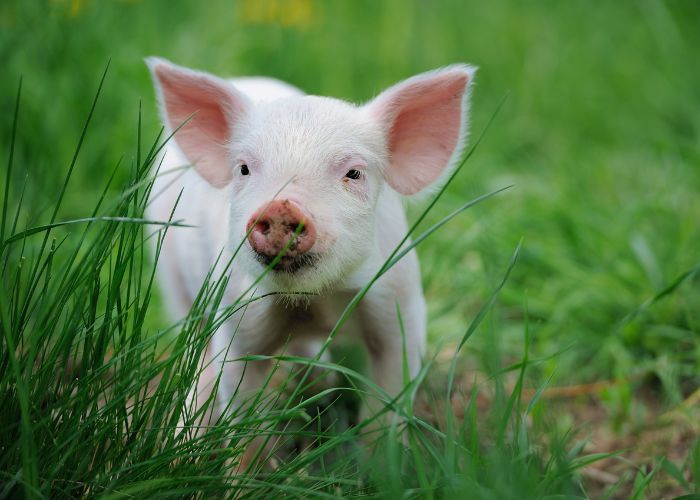
Building a Proactive Culture of Safety
- Empowering Your Team: First Aid training isn’t just about what to do after an accident; it inherently makes individuals more aware of their surroundings. Knowing the potential consequences of hazards encourages a more proactive safety mindset, prompting individuals to identify risks and take preventative measures.
- Shared Responsibility: When multiple people on the farm are First Aid trained, it fosters a collective responsibility for safety. Everyone becomes a guardian of safety, looking out for themselves and their colleagues.
- Compliance and Beyond: While the law dictates basic First Aid provision in the workplace, simply ticking a box isn’t enough for the high-risk agricultural sector. By investing in specialised training, you’re not just meeting regulatory requirements; you’re actively creating a robust safety net that goes above and beyond, showcasing your dedication to the well-being of everyone on your farm.
Ultimately, investing in First Aid training for your farm isn’t an expense; it’s an essential investment in your people, your productivity, and the long-term sustainability and success of your agricultural business.
It’s about ensuring that when the unexpected happens, you’re not just hoping for the best, but actively prepared to make a life-saving difference.
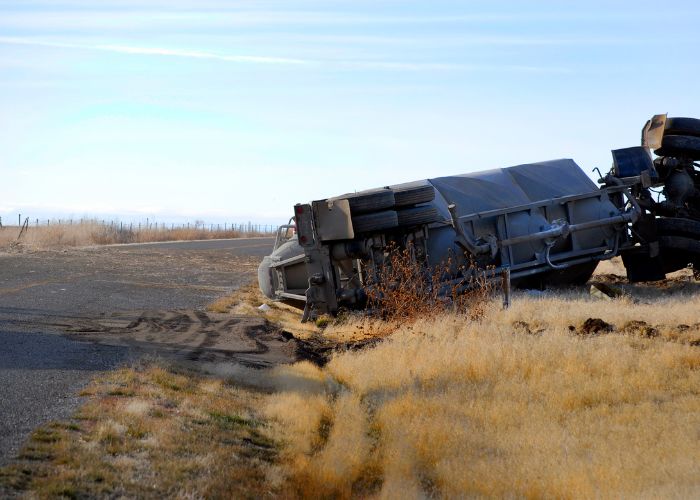
Conclusion: Be Prepared, Stay Safe, Thrive.
As we’ve seen from the sometimes-harrowing, always-educational escapades on Clarkson’s Farm, the agricultural world is a place of immense beauty, hard work, and undeniable risk.
While we can all enjoy the humour and character of Diddly Squat, the underlying message is clear: farm safety is no laughing matter.
When an emergency strikes, whether it’s a fall from a hay bale, a livestock incident, or a machinery mishap, having the right First Aid skills can quite literally be the difference between a minor setback and a life-altering tragedy.
Don’t wait for an accident to prove the point. Empower yourself, your family, and your team with the confidence and competence to act decisively when it matters most.
Lightning Training Solutions is here to help you cultivate a safer, more resilient farm environment. Invest in life-saving First Aid skills today – it’s the most important harvest you’ll ever reap.
Ready to enhance your farm’s safety?
Explore our farm First Aid courses and remember, as a thank you to the vital farming community, we’re offering 10% off all First Aid Courses for farmers!
Contact us directly to find out more and book your training.
P: 01935 473575
M: 07910 407443
E: enquiries@lightningtrainingsolutions.co.uk
WE’RE OFFERING 10% OFF OUR COURSES FOR ALL AGRICULTURAL WORKERS
We can deliver First Aid training on your farm, or we’re happy to split the course over several days or weeks to fit your schedule.
